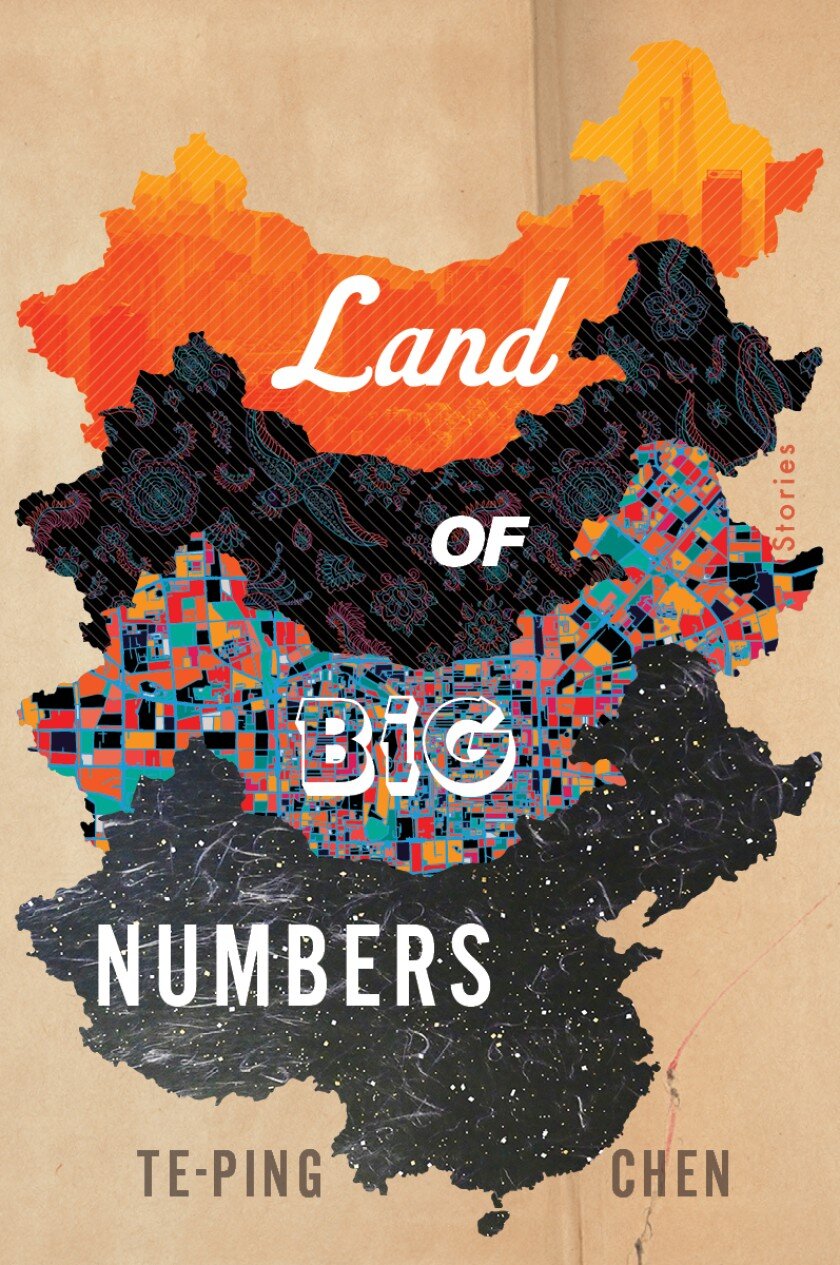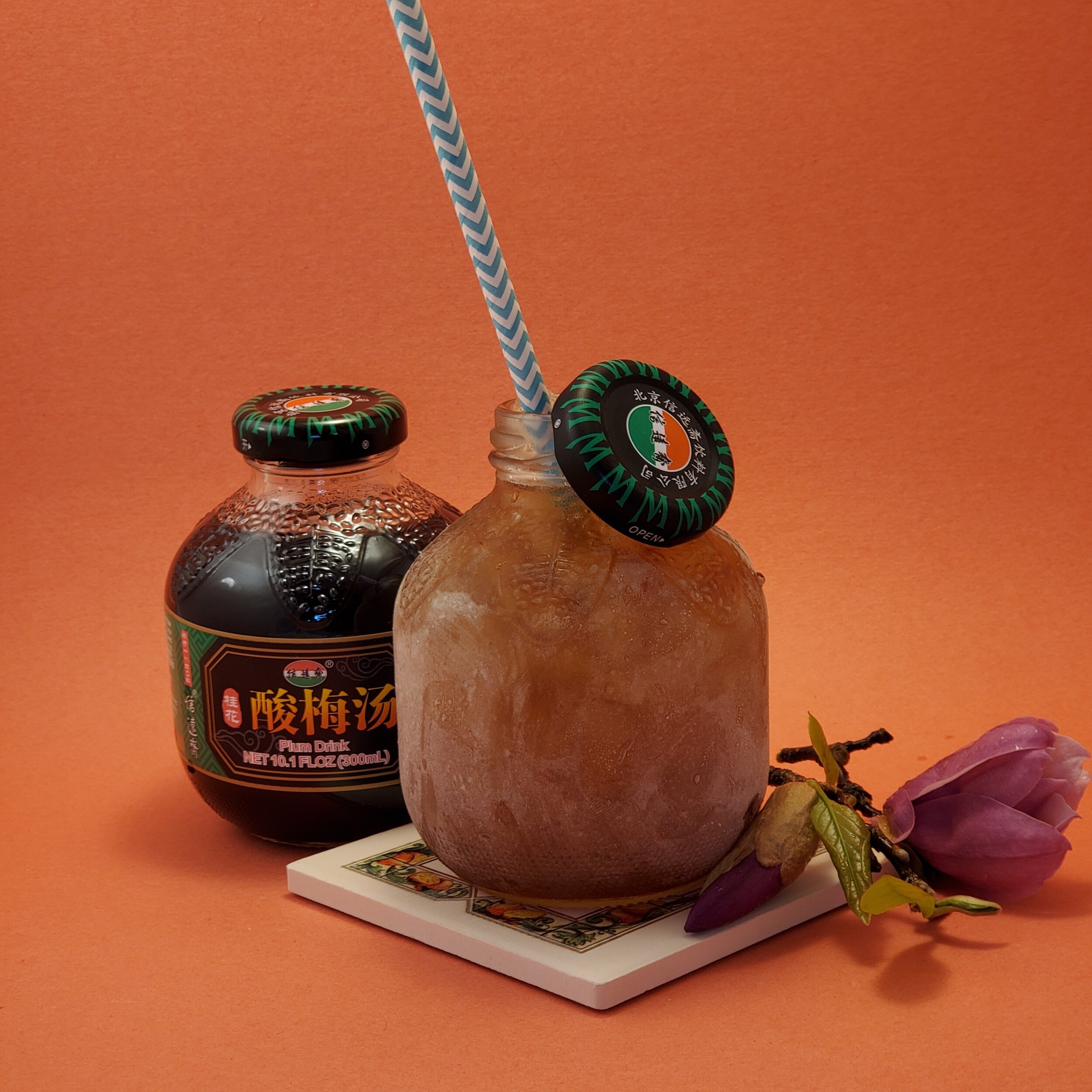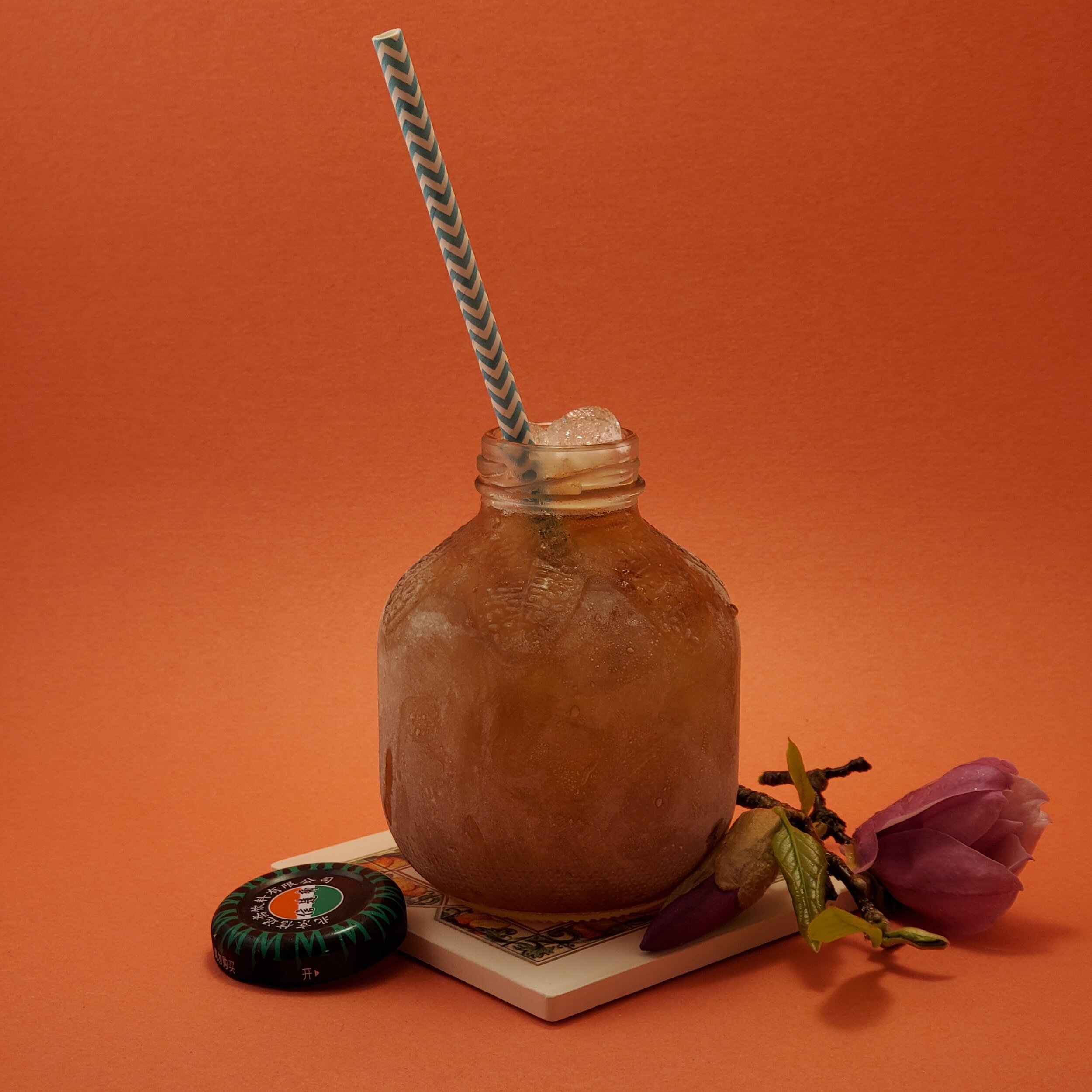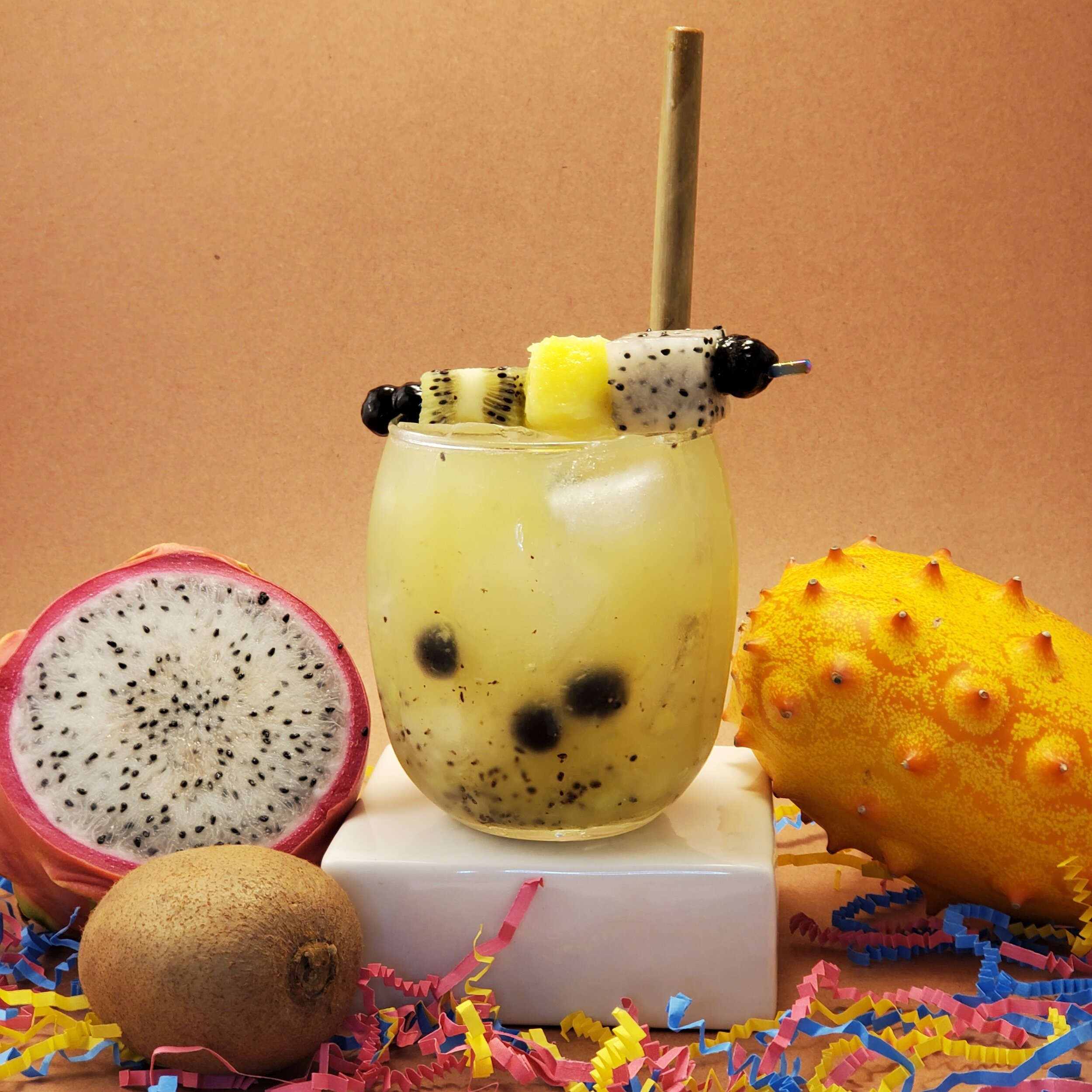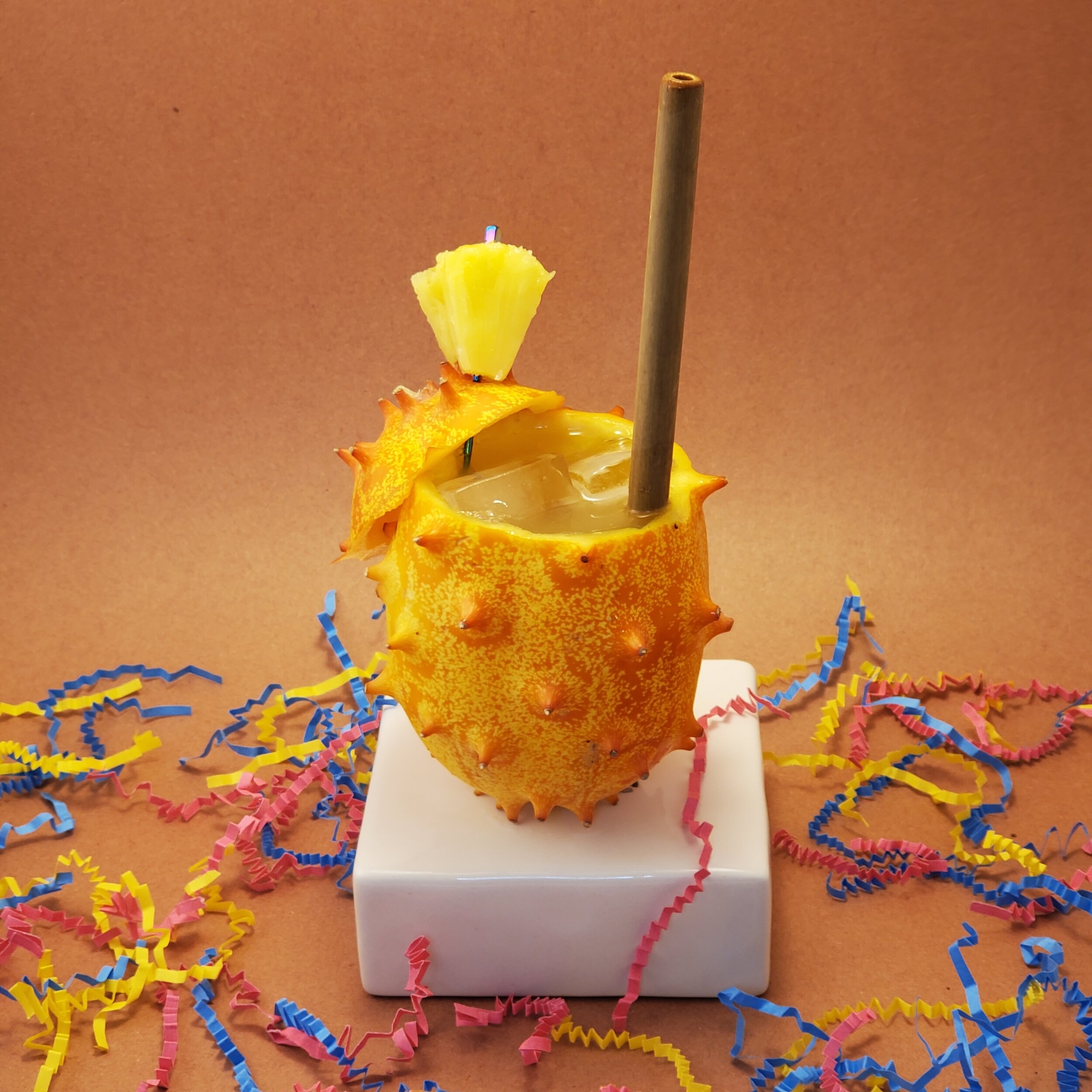Land of Big Numbers & Peculiar Cocktails
Image courtesy of Houghton Mifflin Harcourt.
Book: Land of Big Numbers
Te-Ping Chen’s story collection, Land of Big Numbers, is a collection of stories that present China as it appears to be: foreign, exotic, and populated by people who have a different culture and way of looking at the world. Of course, with a little effort, the stories within reveal the opposite. The China represented in these stories, with its people and politics, aren’t different from America at all. People dream of wealth and seek the quickest, steepest path towards it. Parents lament the absence or failures of their children. The government’s is both brutal and affectionate. These are stories that Westerners should recognize but wrought differently, familiar narratives skinned in the customs and culture of China.
It was midnight when Lulu called me from the police van to say that she was being taken away. “Tell our parents,” she said. “Please. I’m sorry.”
-Land of Big Numbers: Stories (p. 17).
The stories in Land of Big Numbers are frustrated. By which I don’t mean confused or convoluted. What I do mean is that the stories are frustrated and, for their characters (and the readers), they’re frustrating.
Many of the stories end in a way that feels abrupt, particularly for their length and detail. It feels like there should be something more at the end of these stories. In “Lulu” the twin sister of the narrator is repeatedly imprisoned by the government for “trying to subvert state power” while the narrator slowly hones his skills as an e-sports athlete. The story begins with the two being compared as two sides of a single coin—Lulu being very intelligent and a thinker while the narrator “rebelled against her brilliance by playing video games”—and while that closeness continues throughout, especially in the care and concern the narrator has for his sister, it ends without finality: Lulu goes back to prison for ten years and the narrator, an up and coming e-sports athlete, flies to Sydney with his team for the global finals, thinks about his sister, and “prayed for victory, and hoped that she would be proud.”
And in the title story, “Land of Big Numbers,” there’s another sharp conclusion. Zhu Feng steps into the stock market in an attempt to get rich like his friend Li’s father has, and eventually he begins embezzling government money to invest while planning to pocket the earnings and return the “borrowed” money to the right account before the totals are tallied. Of course, the market sinks and Zhu Feng is in trouble. He attempts to borrow money from Li and then his own father who, he learns with no little effort, was wounded by a bullet when he led a protest against the government many years back; Zhu Feng’s father harbors another scar, too, in that the government won’t license him to drive a cab any longer and is the reason he barely works. At the end, Zhu Feng, frustrated from his stock market fate and without a way to escape it, fails to recognize the parallels between him and his father, the brash actions of their youth leading to a serious “blow” that breaks them, believing instead that “something would step into the breach…. [that] the world was a profusion of opportunities waiting to be unfolded….he had only to stretch out his hand.”
These abrupt endings aren’t a storytelling failure, however, but a feature. In each story, the characters work to escape their situations. Zhu Feng doesn’t want to be poor any more and Lulu wants the state to police and brutalize its citizens less. But in their attempts to escape they grow frustrated by failure. This frustration, though, is never alleviated and, in some cases, is exacerbated. Zhu Feng not only fails to get rich but he’ll most likely go to prison. And in “Gubeikou Spirit,” Pan not only spends countless days trapped at the train station but she can hardly muster any care about it from the other inhabitants who assure her there’s nothing better out there for her. The stories in Land of Big Numbers express a trapped frustration and an anxious energy like an animal pacing its small cage, wanting to escape, hoping to be freed.
A man dressed in an untidy, reflective smock, the kind that street cleaners wore, got up, brushing himself off. “You can’t treat us like this!” he shouted. “We have things to do. Let us go.”
The first guard shook his head regretfully. “Passengers must exit at a different station from where they entered,” he said. “It’s in the rule book.”
-Land of Big Numbers: Stories (p. 215).
That same energy isn’t unlike the frustration in America during 2020’s quarantines and lock downs. A once free and haphazard animal, the American people were forced inside where they could only go to work (if essential), walk their neighborhoods, or experience the distant world through their phones.
The stories overall are serious in tone than they are playful, and even the stories that seem uncanny can’t help but become burdened by reality. The peculiar fruit of “New Fruit” stirs dark and hidden emotions, so much so that the fruit is banned for a moment while the government while the original farmer and his wife (a former rags to riches tale) disappear and the orchard burns down. Cao Cao in “Flying Machine” never makes becomes a party member despite his many efforts, and doesn’t even get his machine to fly (though this is, arguably, the happiest story in the collection). And in “Gubeikou Spirit” there’s very little hope that Pan and the others trapped in the train station will ever leave, and when a train finally does appear, she makes a break for it while everyone else chooses to stay, forever solidifying their place in the world below and not guaranteeing Pan that its an escape at all.
But while the stories are full of serious themes, the collection ends hopefully. In a collection about people who are trapped and trying to escape something, whether it’s the boot heel of the government or their social status, the last action of the book is the successful escape of Pan in “Gubeikou Spirit.” It’s a narrativized train version of the idiom “waiting for my ship to come in.” Pan, having been stuck for an indeterminate number of days waiting for a train to arrive finally has the opportunity, but unlike Zhu Feng and Lulu and Cao Cao she’s successful. And despite their being no promise that where the train will take her, whether it’s to her father or back to Gubeikou Station, all that matters is that moment of freedom, of “panting, exhilarated and afraid. [Because] she was already through the door.”
Peculiar Cocktails
Cocktail: State Issued Goodwill Slogan
Thank you for your cooperation, please line up, do not push
Be a civilized passenger, for your safety and that of those around you
We’ll get there together.
-Land of Big Numbers: Stories (p. 214).
The State Issued Goodwill Slogan is delicious, comrade, and handy. Look how compact it is, and, with a lid, who could doubt it’s usefulness? It revitalizes as well! You will feel the years fall away. May your bones remain fortified! Made with luxurious blended scotch and bitter liqueur it is the best of life, comrade. And the familiar plum drink! A plum in season gives a laborer reason, who could forget? We are truly living in the best of years. Truly. Who could argue otherwise?
State Issued Goodwill Slogan
2oz Blended Scotch Whisky
0.5oz Plum Drink Syrup*
0.5oz Cynar (or other bitter aperitivo)
0.25oz Ginger Liqueur
Plum Drink to top
Pack a glass or functionally effective bottle with pellet ice.
Add all ingredients (except extra Plum drink) to a mixing tin and stir together without ice; pour into glass/bottle. Repack with pellet ice.
Top with Plum Drink and serve with a straw.
Spread the goodwill, comrade! It’s like they say…
*Plum Drink Syrup: Reduce by half 300g/10oz of imported Plum Drink; then add 50g white sugar, 5g Pomegranate Molasses, and 1/8th tsp of salt. Refrigerate for up to a month.
Cocktail: Big Duck Energy
Can you can you can you can you see me, flying now straight into your heart.
-Land of Big Numb-ers: Stories (p. 106).
What a lot of folks around here don’t know is that the kiwi came from China. That’s right, China. It was rebranded after the little brown flightless bird to keep it exotic but to make it less scary for Americans. Can you imagine, being afraid of a little gooseberry? That’s small duck energy if you ask me. Not like that guy over in Big Duck Village who built a robot and plane car. I heard he eats peculiar fruit daily, to fortify his bones. You are familiar with the old saying, comrade. Look here, come closer. I’ll tell you the secret to his energy. More than fruit, it’s a powerful spirit. No, no. Gin! It’s gin, and a little curacao with his “kiwi” gooseberry. That’s the secret to Cao Cao’s Big Duck Energy.
Big Duck Energy
2oz London Dry Gin
0.75oz Dry Curacao
2oz Kiwi Cordial*
0.75oz Lime Juice
(Optional:) Tapioca Pearls
Add all ingredients (except tapioca pearls) to a tin and then add ice; shake for 10-15 seconds.
Open pour into a hollowed out fruit or glass, and add tapioca pearls on top and allow them to plinko down over the ice. Add a straw.
In no time at all, you will be a party member. Soon, comrade. Such Big Duck Energy is the way. Remain resolute!


